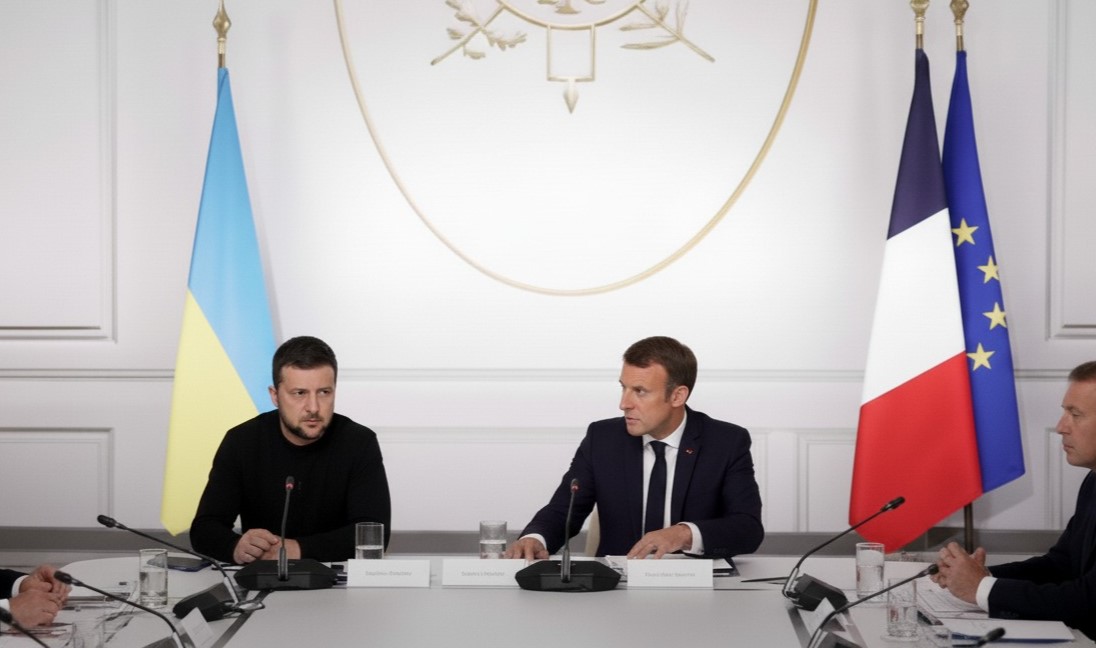Overview of the Coalition of the Willing Summit
On September 4, 2025, French President Emmanuel Macron hosted the Coalition of the Willing summit in Paris, where 26 countries agreed to support Ukraine’s long-term security once the war with Russia ends. The move signals one of the strongest collective commitments yet to Ukraine’s future, though its exact scope remains uncertain.
Key Announcements and Details
Macron said the countries had pledged to form a multinational “reassurance force.” This would not be a fighting mission but a stabilizing presence, with deployments possible on land, at sea, or in the air. Some nations are expected to send troops, while others will contribute through training, equipment, or financing.
What this force looks like in practice — troop numbers, areas of operation, and command structure — has not yet been finalized.
The U.S. Position
After the summit, Macron, Ukrainian President Volodymyr Zelenskyy, and other European leaders held a call with U.S. President Donald Trump. Macron later insisted he had “no doubt” about Washington’s backing, though the specific U.S. role remains unclear. Officials expect more detail in the coming days.
International Reactions
- Ukraine: Zelenskyy welcomed the outcome, calling it a “victory” that so many nations had signed on to Ukraine’s security.
- Russia: President Vladimir Putin immediately condemned the plan, warning that any foreign troops stationed in Ukraine — even after the war — would be treated as “legitimate targets.”
---
Context and Background
The war in Ukraine, now stretching into its fourth year, has left millions displaced and large parts of the country devastated. While Western governments continue to provide weapons and aid, many leaders believe Ukraine also needs firm post-war guarantees to prevent Russia from simply regrouping and attacking again.
The Paris summit was Macron’s attempt to pull together a wide coalition around that idea. For Ukraine, the pledges don’t replace its long-term goal of NATO membership, but they offer a more immediate layer of protection once the guns fall silent.
---
Analysis and Next Steps
Why It Matters
The fact that 26 nations are willing to commit in some form is a major diplomatic achievement. It sends a clear political message: Ukraine will not be abandoned. But it also raises the stakes with Moscow, which sees any such deployment as a threat.
A senior European diplomat summed it up bluntly:
What’s Still Unclear
- Troop numbers and locations: None have been publicly confirmed.
- Division of roles: Some countries will send forces, others will provide only training or equipment.
- U.S. involvement: Washington’s exact contribution — whether intelligence, air support, or logistics — is still under discussion.
- Timing: Everything depends on when the war ends, which shows no signs of happening soon.
Russia’s Counter-Move
Putin’s warning suggests that any deployment could spark fresh confrontation. By declaring the force a “legitimate target,” Moscow is laying down a marker: even peacekeeping-style missions may be treated as hostile.
---
Conclusion
The Coalition of the Willing summit marks a turning point. For the first time, dozens of nations are openly preparing for the day after the war in Ukraine.
But promises on paper are one thing; putting boots on the ground is another. The next phase — hammering out the details, securing U.S. backing, and managing Russia’s reaction — will determine whether this reassurance force becomes a stabilizing shield or another source of escalation.
